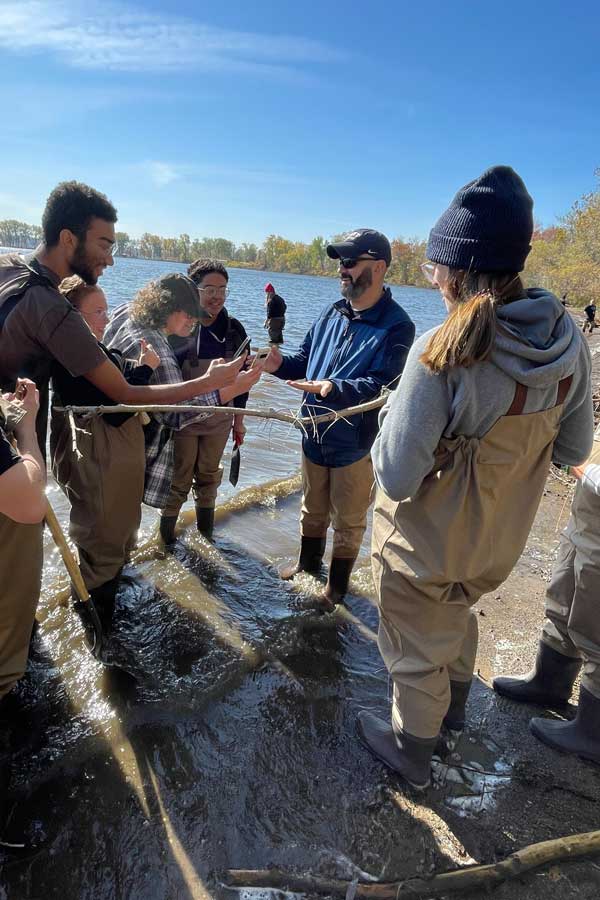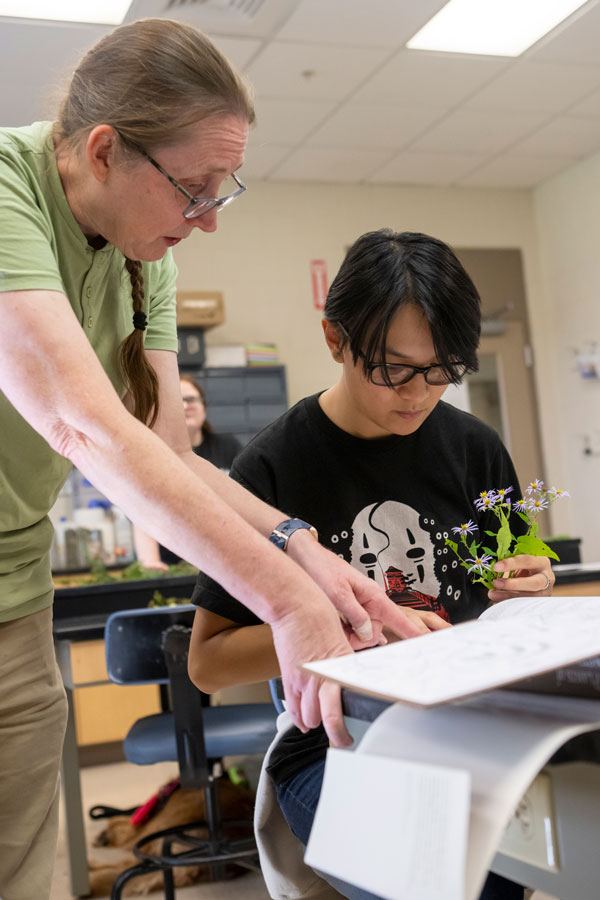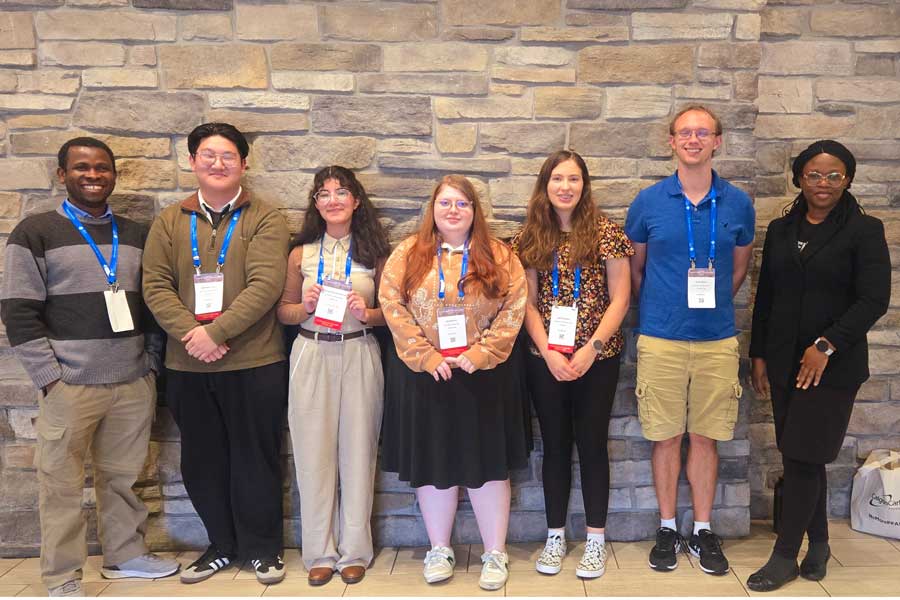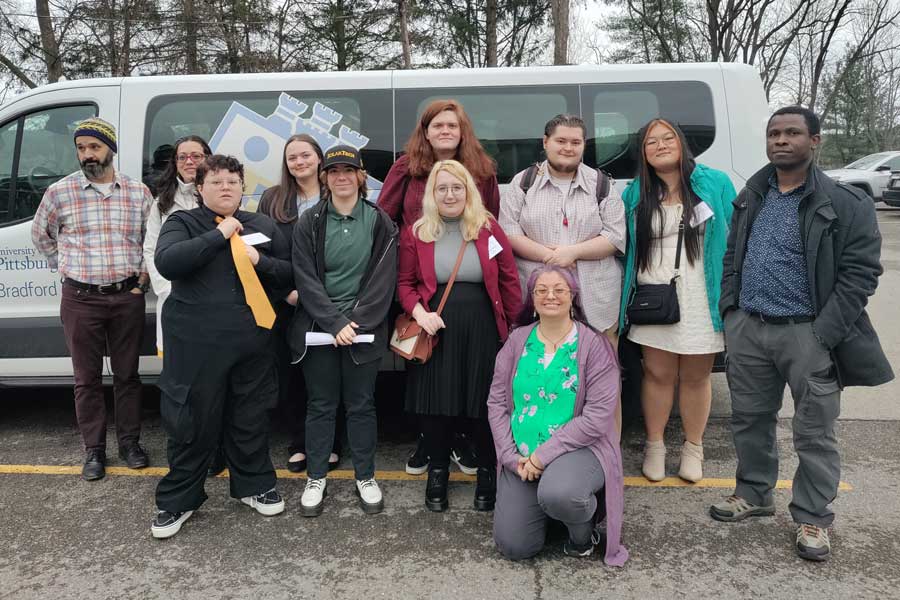
Environmental Science - BS
As climate change causes more extreme weather, ocean acidification and sea level rise, the world needs workers with a solid environmental science background.
Why study environmental science at Pitt-Bradford?
Because part of studying environmental science is going outside to study the environment.
As an environmental science student, you may ride in a canoe on nearby Marilla Reservoir to measure water depth and collect sediment samples. You may also study the folded rocks of the Appalachian Mountains in West Virginia, investigate the water quality of the Genesee River watershed in New York and Pennsylvania, or plant seedlings to prevent erosion and assess invasive fish species in Lake Erie.
You also may go on other cool field trips, including the Maine Gem and Mineral Museum, where you may get to hold the world’s largest rock fragment from the moon or a fragment from Mars.
What will I learn?
You’ll learn how you can use science to make a positive impact on the world.
See how geology, chemistry, physics and biology work together to shape our world. Learn how to use science to protect nature, clean up pollution, and manage water resources. Examine how climate change affects everything, from our local parks to the entire planet. Study the fossil fuel industry and its impact on the regional environment. Discover how green technology is being used throughout the area.
Along the way, you’ll choose a specialty: physical science, biological science – or both.

What can I do with a degree in environmental science?
You’ll use what you learned to protect the environment by collecting and analyzing samples, surveys and data to identify possible environmental threats and recommend ways to address the problem.
For example, you may assess the environmental risks a new construction project poses and recommend ways to minimize its impact. Or you may work to reclaim lands and waters that have been contaminated by pollution.
Job titles
- Environmental scientist
- Environmental science technician
- Environmental compliance officer
- Conservation scientist
- Hydrologist
- Natural science manager
- Geoscientist
Employers
- Government agencies
- Sanitation companies
- Manufacturers
- Nonprofits
- Local, state or national parks
- U.S. Geological Survey
- Consulting firms
-
ES 1301
Advanced Field Methods And TechniquesIn this advanced field research course students will continue to use biological/ecological/and chemical research methods to address and understand current environmental issues. Students will carefully select a scientific research study that is of value or interest. This will allow for a more active role in the experimental design process. After carefully planning and gathering research and resources, they will either replicate that study, try it again to improve it, or use it as a basis for a new idea. Learning research methods is an important skill needed in addition to conducting field work and making good decisions in the laboratory. A more in-depth use of statistics, scientific plots, writing a scientific lab report, and presenting a research project will also be included in this course. -
GEOL 1303
Geomorphology & Environmental SystemsThis course is intended to provide the students with an in depth understanding of how the current landscape came to be, what is its connection to the subsurface environment, and how are the two influencing the human-environment interactions. The course has a three (3) hour lab component during which you will be conducting a variety of laboratory exercises, which will allow you to review and understand important concepts and processes.
Program-Related News

Students and faculty present research
Seven attend American Chemical Society meeting in Pittsburgh.

Students present research at Penn-York
Annual undergraduate research conference to be hosted on campus next year.

Fund for Mount Jewett students reaches $1 million
Preference for Turnquist scholarships given to math and science majors.